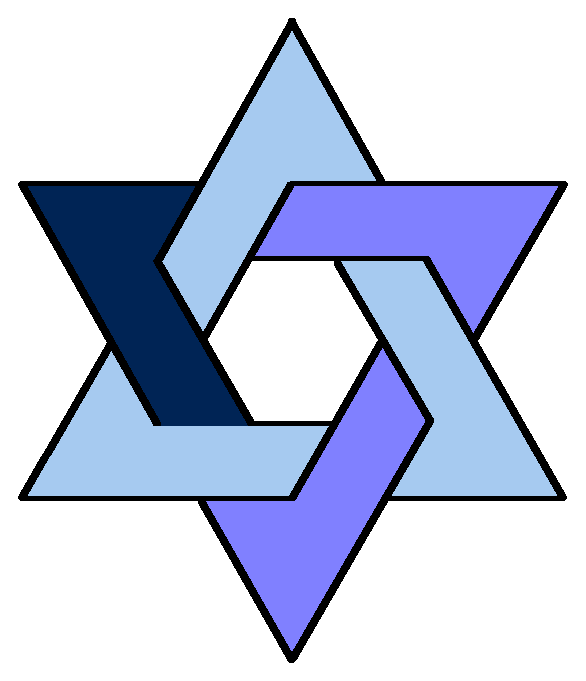Level: Advanced
On the question of human nature, as in most areas of abstract belief in Judaism, there is a lot of room for personal opinion. There is no dogma on the subject, no required belief about the nature of humanity. There are a variety of contrary opinions expressed on the subject, and one is no less a Jew (and no less a good Jew) for disagreeing with any or all of these opinions. Nevertheless, there are certain ideas that seem to reflect the majority opinion in Jewish thought that are worth discussing.
The Bible states that humanity was created in the image of G-d, but what does it mean to be created in the image of G-d?
Clearly, we are not created in the physical image of G-d, because Judaism steadfastly maintains that G-d is incorporeal and has no physical appearance. Rambam points out that the Hebrew words translated as "image" and "likeness" in Gen. 1:27 do not refer to the physical form of a thing. The word for "image" in Gen. 1:27 is "tzelem" (צֶלֶם), which refers to the nature or essence of a thing, as in Psalm 73:20, "you will despise their image (tzel'mam צַלְמָם)." You despise a person's nature and not a person's physical appearance. The word for physical form, Rambam explains, is "to'ar" (תֹאַר), as in Gen. 39:6, "and Joseph was beautiful of form (תֹאַר) and fair to look upon." Similarly, the word used for "likeness" is "d'mut" (דְּמוּת) which is used to indicate a simile, not identity of form. For example, "He is like (dimyono דִּמְיֹנוֹ) a lion" in Ps. 17:12 refers not to similar appearance, but to similar nature.
What is it in our nature that is G-d-like? Rashi explains that we are like G-d in that we have the ability to understand and discern. Rambam elaborates that by using our intellect, we are able to perceive things without the use of our physical senses, an ability that makes us like G-d, who perceives without having physical senses.
In Genesis 2:7, the Bible states that G-d formed (vayyitzer וַיִּיצֶר) man. The spelling of this word is unusual: it uses two consecutive Yods instead of the one you would expect. The rabbis inferred that these Yods stand for the word "yetzer" (יֵצֶר), which means impulse, and the existence of two Yods here indicates that humanity was formed with two impulses: a good impulse (yetzer ha-tov יֵצֶר הַטּוֹב) and an evil impulse (yetzer ha-ra יֵצֶר הַרַע).
Yetzer ha-tov is the moral conscience, the inner voice that reminds you of G-d's law when you consider doing something that is forbidden. According to some views, it does not enter a person until his 13th birthday, when he becomes responsible for following the commandments. See Bar Mitzvah.
Yetzer ha-ra is more difficult to define, because there are many different ideas about it. It is not a desire to do evil in the way we normally think of it in Western society: a desire to cause senseless harm. Rather, it is usually conceived as the selfish nature, the desire to satisfy personal needs (food, shelter, sex, etc.) without regard for the moral consequences of fulfilling those desires. In fact it says in Bereishit Rabbah 9 that yetzer ha-ra is part of what makes the world "very good" (Genesis 1:31) instead of just "good," because "without yetzer ha-ra, no one would build a house, take a spouse or have children."
